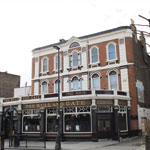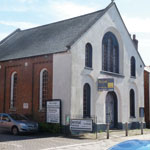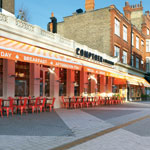Property focus – Success in the South-east
Despite a gloomy economic outlook for the property market as a whole, the South-east of England is trading reasonably well. Yet, with quality and value for money at the top of every buyer's priority list, even the market in the wealthiest region of the UK remains relatively fragile. Elly Earls reports
At the beginning of last year, Christie & Co's 2011 Business Outlook report predicted that, despite difficulties in the business environment, average property prices in the hospitality sector had plateaued and potentially emerged from the bottom of the value curve. But 12 months later, as 2012 got underway, the award-winning property advisor was forced to revise its predictions.
Christie & Co's 2012 Business Outlook report states that, in the face of continuing economic uncertainty, the plateauing of property prices in 2010 must now be viewed as a step towards prices once again settling at a lower level in 2011. Indeed, in 2011, restaurant prices were down 4.1%, pubs 1.1% and hotels 5.1%.
And looking forward to 2012, the market remains very fragile, according to Andrew Moore, of Christie & Co. "It's extremely price sensitive," he says.
Yet, despite a generally gloomy outlook across the UK, the property market in the South-east, and London in particular, is holding up impressively well.
London: leading the way
In 2011, trading performance was inextricably linked to the nation's economy, which meant it was very much a case of London and the rest, with London significantly outperforming the rest of the country. And, by all accounts, this trend is set to continue into 2012 and beyond.
"In central London, the premiums being paid for restaurants are still very, very strong, mainly due to lack of supply and demand," says Ross Kirton, director of licensed and leisure at Colliers International UK. "There's also been an influx of overseas operators coming into the UK, such as Sushisamba from New York and Russian operator Novikov.
"The weak pound combined with the high spending capability of tourism and the high population head offices situated in London make it an attractive proposition for them. They're all going for landmark properties in central London."
Both hotels and pubs are also faring well in the capital. "In terms of pubs, London is the preferred area, followed closely by areas within the M25 commuter belt," Kirton says.
"And London is still very, very strong indeed for hotels, mainly due to limited bed stock, a rolling diary of events and the relatively weak pound," says Julian Troup, head of the UK Hotels Agency at Colliers International. "When you roll all that together, it's resulted in prices remaining high and premium figures still being paid,"
Pricing and quality
Yet, London is a very different beast to the rest of the South-east, which comprises Berkshire, Buckinghamshire, East Sussex, Hampshire, the Isle of Wight, Kent, Oxfordshire, Surrey and West Sussex.
"The view that we have on hotels is that if we're looking at the South-east, you can take it as London and the South-east," Troup says. "With regard to the area outside the City of London, our view is that things have stabilised over the last couple of years. When we moved into the more challenging times, there was a fall back and we've found that has levelled out a touch now.
"The view that is consistent throughout the whole of the provincial UK is that quality hotels are retaining their values; it's the poor quality stock where trade is down and where it's more difficult."
Although transactional activity is at nothing like the level it was during the boom period of 2002-07, Troup is adamant that things are picking up. "There are still plenty of buyers out there, but they're being selective on how they spend their money," he notes.
This is true not only with regard to the quality of the hotel itself, but also the quality of its location. "The Home Counties will always attract interest," says Troup. "As the market has contracted, it has left certain areas behind, but there will always be quality hot spots that people are keen to get into."
For Josh Leon, associate director in Davis Coffer Lyons' agency team, this is equally true of the restaurant sector, where Brighton, Cambridge, Oxford, Tunbridge Wells and Windsor have fared particularly well.
"Everyone is hedging their bets on wealthy towns or towns with a major shopping density and a nice high street and disregarding the towns they see as at all risky. It means that the values in the good places are going up and the values in the slightly risky places are going down; it's polarising," he says.
However, for Moore, regardless of location, everything will sell at a price. "That is true in any market and I think it's probably even more so in this sort of market," he says. "The market is absolutely price sensitive, but if it's priced correctly, we have buyers."
Customers and buyers focused on value
Buyers' focus on price is mirrored by their customers, who are increasingly seeking a value-for-money offering. For Kirton, this has significantly impacted the types of deals being done in the restaurant sector.
"The branded guys are leading the way," he says. "Spending has been squeezed but that doesn't mean people are going out less. Rather, it's forced them towards the branded route, where they know they'll get value for money."
The pub sector has also been strongly influenced by its punters' desire for value for money. "The managed pub sector is in the biggest growth and tenancies are in the biggest decline," Kirton adds. "Again, this is down to being able to offer value for money. A managed operator is able to offer some quite phenomenal discounts to entice customers in."
South-east versus the rest of the UK
Despite the fragility of the market in the South-east, which relies, and will continue to rely heavily, on both price and quality, the impact of the UK's economic uncertainty has certainly been felt less in that area than it has in the rest of the country.
"The further north you go, the more challenging it is in terms of pricing," Troup explains. "It's about availability of money and down in the hub of the UK, there is much more availability of money, which has helped to support prices."
Looking to the future, Troup also believes there is hope the market will improve still more. "Lifestyle buyers are starting to come back," he forecasts. "They see hospitality venues as an opportunity to run their own business and we think that will start to pick up."
TWo PROPERTIES WITH POTENTIAL
Davis Coffer Lyons is currently marketing large character pub and live music venue the Bull and Gate as either a freehold or a free-of-tie leasehold.
A detached, Grade II-listed property, the imposing red brick building is located within a few hundred metres of Kentish Town underground, boasts substantial residential space upstairs and holds a 2am licence.
The venue has played an important part in London's drinking and live music scene for decades, hosting bands such as Nirvana, Blur and the Killers.
The landlord will accept freehold offers in excess of £2.25m, and will consider granting a new free of tie lease within the Landlord & Tenant Act with terms to be agreed, with rental and premium offers invited.
Contact details Chris Bickle
Tel: 020 7299 0706
E-mail: cbickle@daviscofferlyons.co.uk
In February 2011, Noel Kavanagh, the owner of the Church on Gosport Street, obtained planning permission and change of use (A3) to knock down the rear of the building to create space for a unique restaurant with a bespoke kitchen and working area on the ground floor with two flats above.
He, in partnership with Savills and Goadsby, is now hoping to let the venue to a restaurateur seeking to create a new and unique eating experience in Lymington.
The premises will be offered by way of a new free-of-tie, full repairing and insuring lease, term to be agreed, subject to upward only rent reviews every five years. The rental guide is £40,000 per annum, exclusive. Incentives, including a capital contribution, will be considered.
Contact details Adam Bullas, associate
Tel: 023 8071 3957
E-mail: abullas@savills.com
TWO BUYERS SHARE THEIR TIPS
Tony Kitous, owner of London-based Lebanese café chain Le Comptoir Libanais, opened his latest branch in South Kensington four months ago.
The location was an absolute no-brainer for the experienced restaurateur. "It's in a pedestrianised street just outside a very busy tube station, close to museums and a theatre; the footfall is phenomenal," he says. "After one look, my partner and I made the phone call with our offer."
Luckily for Kitous, the landlord was very clear on the sort of concept he wanted. "I believe there were 20 to 25 people bidding for it and we weren't the highest bidder," Kitous notes. "But the landlord was very much after us as a concept. We're ethnic, we're fresh, we're fast, we're fun, we're value for money. It's very unpretentious, very simple and very real. Traditionally, Lebanese food has only really been done for the Arab community, but we've opened that barrier and made it accessible for everyone."
Both Kitous and the landlord have been proven absolutely right in their decision. "From day one, even in the winter, we've had queues," Kitous explains. "And the landlord is now thinking of giving us more space. We're losing opportunities by having a lot of people queuing."
The Swan at the Vineyard, Lamberhurst, Tunbridge Wells
Martial and Natasha Chaussy, of Elite Pubs, completed the purchase of the Swan at the Vineyard near Tunbridge Wells at the end of February, having had access since early January, and reopened the new, improved pub on 31 March.
"We've got four existing pubs all based in the South-east so we know the area really well," Natasha Chaussy says. "We know the geography, we know the demography and we know there is a strong market for the kind of pubs we deliver. We're close to Tunbridge Wells, which is quite an affluent area, so we've got the draw from there, which is absolutely key."
But the Chaussys would never leap into a property purchase without ticking absolutely every box. "If one of those boxes isn't ticked we know that things fall down," Chaussy notes. "But this pub had a fantastic location, a great layout, a good-sized kitchen, good outside space and potential that hadn't been released."
Indeed, the couple decided to completely refurbish the venue before opening. "We did the refurbishment in three months; we wanted to do it as quickly as possible so we could get customers in as quickly as possible and start trading," Chaussy explains.
"Our aim in our first year is to make sure we are the best place to get a really good pint and an outstanding meal in a relaxed friendly environment - no airs and graces."













